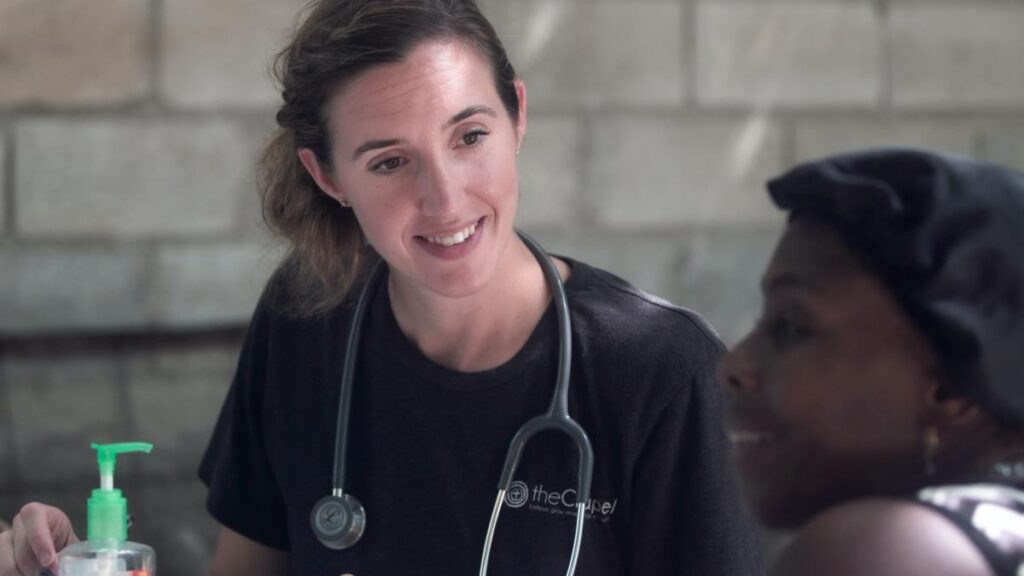
Steps to Become a Nurse Practitioner
Becoming a nurse practitioner can be arduous. The journey requires [...]

Psychiatric mental health nurse practitioners (PMHNP) undertake critical roles across healthcare. They can diagnose mental health conditions and treat patients with psychotherapy and medicine—often without physician oversight. They help address shortages in a field projected to fall 10,000 practitioners shy of demand by 2025.
While PMHNPs typically work for outpatient facilities, they can also deliver psychiatric care in inpatient settings, including substance abuse hospitals, psychiatric wards, and even correctional facilities.
Some PMHNPs work in underserved communities; those who serve rural populations may be the only healthcare provider in their area. Lakota Indian Whitney Fear, for example, is the sole Native mental healthcare provider for a North Dakota-Minnesota community of 250,000. Her practice includes assisting patients dealing with homelessness, trauma, substance abuse, and human trafficking. “I really do try to keep in mind traditional Lakota values, like compassion,” Fear explains, to “give people the benefit of the doubt that they’re doing the best they can… If you’re patient and kind to them and love them, rather than judge them and respond to them with harshness, then they’re going to feel better.”
Many PMHNPs start their career journey by earning a Bachelor of Science in Nursing (BSN) degree. This article discussing the journey from BSN to Psychiatric Mental Health Nurse Practitioner (PMHNP) offers guidance on how to make that leap. It covers:
For those who want to work in advanced mental health care nursing, the PMHNP role is one of the best career paths. However, you don’t go from a Bachelor of Science in Nursing (BSN) to PMHNP overnight. Transitioning into this role requires several years of study leading to a master’s or doctoral degree.
For those who don’t want to pursue further education should consider specializing in mental health nursing as a registered nurse (RN). American Nurses Credentialing Center (ANCC) offers an RN specialty certification in mental health nursing. Earning the ANCC certification requires working at least two years as an RN and completing 2,000 hours of clinical experience in psychiatric-mental health nursing (over a maximum of three years).
PMHNPs can diagnose mental illness and even prescribe medicine (subject to state restrictions). According to O*Net, a federal occupation database, specific duties for psychiatric advanced practice nurses can include requesting and evaluating tests, reviewing medical (including psychological) history, developing focused treatment plans, and conducting therapy sessions (individual and group). Specific PMHNP responsibilities may depend on where you work and the community you serve—those who work with children and adolescents perform different tasks than those who specialize in geriatric care.
While some schools offer combined BSN and Master of Science in Nursing (MSN) programs, most students don’t travel this route to a PMHNP career. The big middle step is to become an RN, which requires passing the National Council Licensure Examination (NCLEX) after completing an accredited nursing education program.
To become an RN, professionals can complete an Associate’s Degree in Nursing (ADN), a hospital-based program, or a BSN. One advantage of earning a BSN over the other options—either as a four-year degree or as part of an accelerated program for those with a bachelor’s degree in another field—is you likely won’t need to complete additional coursework before entering a graduate program. Applicants who hold associate’s degrees may have to complete an RN-to-MSN program that includes additional coursework.
Aspiring NPs must decide between a master’s and doctoral degree. MSN programs represent the traditional choice, but several nursing leaders have encouraged the field to adopt the DNP as its primary degree for advanced practice registered nurses (APRN), including PMHNPs.The idea hasn’t caught fire yet, and most advanced practice nurses still choose a master’s, according to the APNA.
Psychiatric mental health nurse practitioner programs divide credit hours between general NP competencies and specialization-specific coursework. Psychiatric nursing is typically one of several potential tracks offered. Others include adult-gerontology (acute and primary care), emergency, family medicine, neonatal, midwifery, pediatrics, and women’s health.
Core courses usually include pathophysiology, health assessment, pharmacology, and patient-centered care. MSN nursing students spend most of their classroom time on focus-specific courses that can build on core coursework. Course titles for Yale University’s PMHNP program include Advanced Pathophysiology, Individual Psychotherapy, Clinical Psychopharmacology Across the Lifespan, Transitions to Professional Practice, Promoting Health in the Community, and Family Psychotherapy Seminar.
MSN students also complete clinical hours—at least 500, according to the American Association of Colleges of Nursing (ACCN). These rotations occur in settings where graduates may pursue jobs.
The ACCN reports full-time MSN programs typically take between 18 and 24 months to complete. Part-time PMHNP programs take longer. Schools can offer both in-person and online programs.
Though admissions requirements differ by program, most set the bar fairly high. CUNY Hunter College School of Nursing mandates that applicants have two or more years of experience as a licensed RN. Other admissions requirements include a BSN GPA of at least 3.0. Your baccalaureate education must include research and statistics coursework; those who don’t meet the requirement must complete makeup classes.
Other admissions requirements include a statement of purpose, letters of recommendation, your resume, and transcripts.
PMHNP MSN programs prepares graduates for the Psychiatric-Mental Health Nurse Practitioner (Across the Lifespan) Certification (PMHNP-BC) exam. Eligibility requirements for prospective exam takers include master’s coursework in advanced physiology/pathophysiology, advanced health assessment, and advanced pharmacology, health promotion or maintenance (or both), and differential diagnosis and disease management (with and without drugs). Finally, programs must include “at least two psychotherapeutic treatment modalities” as part of the 500 (minimum) clinical practice hours.
(Last Updated on February 26, 2024)
Questions or feedback? Email editor@noodle.com

Becoming a nurse practitioner can be arduous. The journey requires [...]

If you're already a registered nurse, you can become a [...]
Categorized as: Advanced Practice Nursing, Nurse Practitioner, Nursing & Healthcare